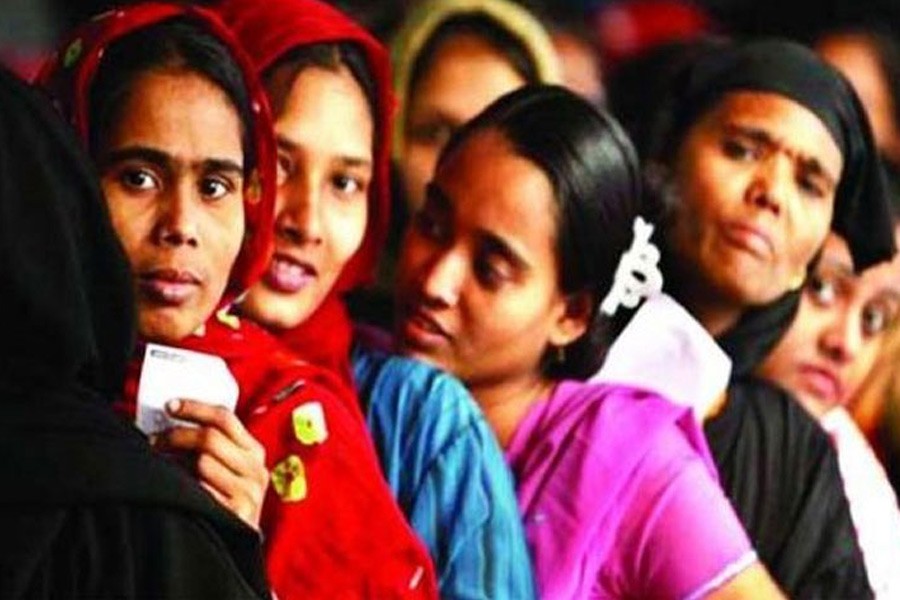The expatriates' welfare ministry has initiated a move to be more cautious in selecting and sending female workers abroad to lessen workplace abuse.
Under the process, a team of officials will interview the women after their 30 days' training to make sure what they had learnt, said a senior ministry official.
The expatriates' welfare and overseas employment ministry has already started working to this end, he said on condition of anonymity.
Through such training, women can perform better. Then they can be secure from incidences of violence.
The government move came following the recent return of exploited women victims from the Kingdom of Saudi Arabia (KSA), he added.
In the past five months, more than 1,000 domestic helps returned home from the oil-rich country, officials and rights agencies said.
As many as 121 came back home in May. Most of them allegedly experienced torture and sexual assaults during their stay in the KSA.
Strong monitoring must be ensured by the recipient country, said Sumaiya Islam, director of Bangladesh Obhibashi Mohila Sramik Association (BOMSA).
Saudi employers should be given counselling on how to deal with the domestic helps, Sumaiya added.
When asked, the ministry official said the women, who would perform better following the training course, will be allowed to go to abroad.
Their age and physical fitness should also match the requirements, he mentioned.
"Women workers are not currently given proper skill training before being sent abroad," he said
"So, they are unable to fit into their jobs, norms, culture, food habit etc.," the official admitted.
Many of them do not know how to protect themselves when they fall in awkward situations.
"From now on we'll be more cautious in sending women workers abroad," said the official.
Through such process, the incidence of abuse will come down, he hoped.
The Bureau of Manpower Employment and Training (BMET) runs 71 technical training centres (TTCs) across the country providing training in 45 trades.
Women are allowed to go abroad for all types of jobs. But most women are found to prefer house help ones.
Earlier, Indonesia and the Philippines protested against torture of their domestic helps in the KSA.
They also reduced sending women workers to the kingdom.
The KSA then decided to hire workers from Bangladesh.
An agreement was signed with Saudi Arabia to recruit female workers in 2015.
About 0.2 million women went to the country since the signing of the deal.


